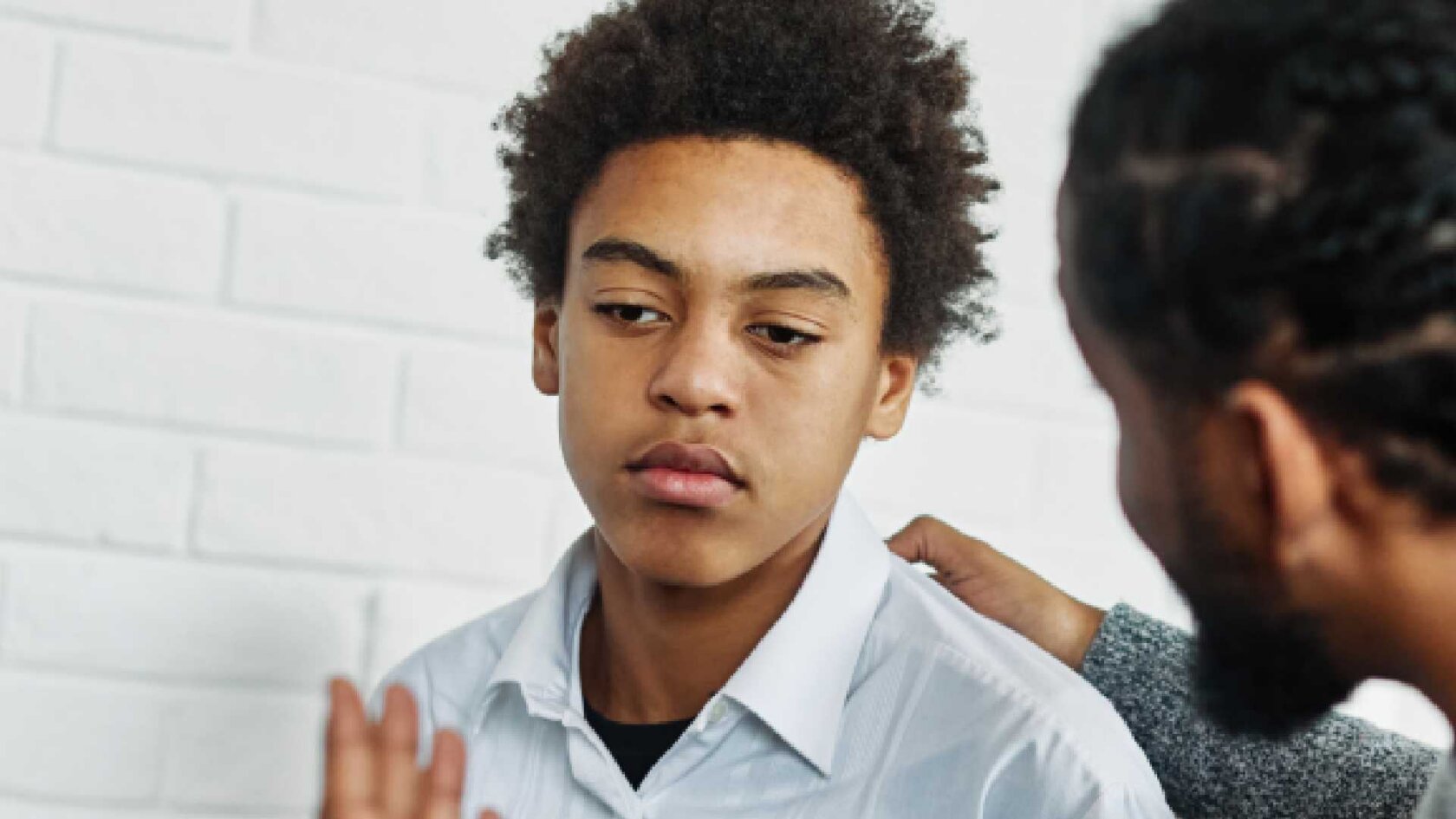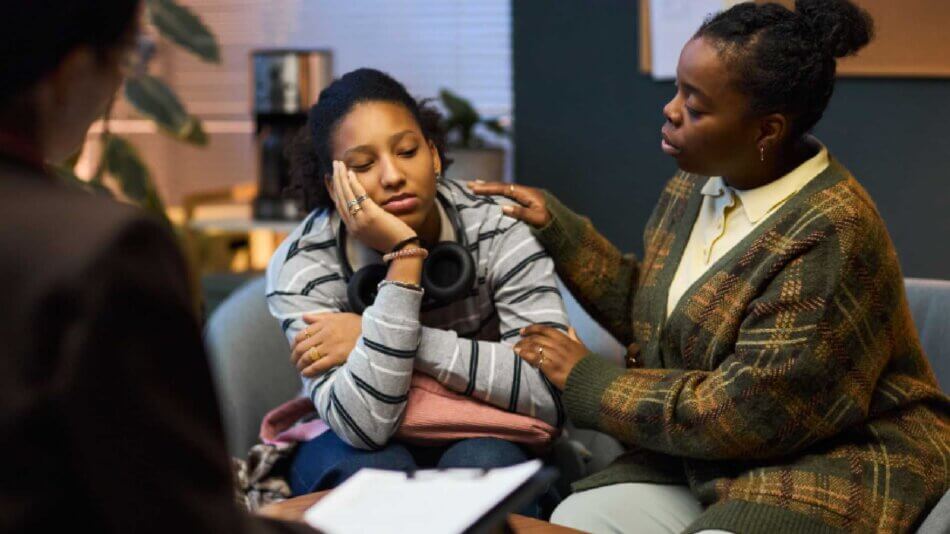You’re looking for therapy for teens with impulse control issues, and you want to understand how the right program can benefit not only your child but your whole family. Impulse control disorders in adolescents often show up as defiance, aggression, risk-taking or emotional outbursts that disrupt daily life and strain relationships. Early, structured intervention can reduce problematic behaviors, improve your teen’s emotional regulation and provide you with tools to support lasting change.
Understanding impulse control disorders
Defining ICDs in teens
Impulse control disorders (ICDs) describe a group of behavioral challenges where teens struggle to resist urges that can harm themselves or others. Conditions like intermittent explosive disorder or conduct disorder often overlap with symptoms of ADHD or oppositional defiant disorder (ODD). Mental health professionals use DSM-5 criteria—symptoms present for at least six to twelve months and causing significant distress—to diagnose these issues [1].
Signs and symptoms
You may notice your teen:
- Acting on sudden urges—yelling, breaking objects, physical fights
- Engaging in risky behaviors without considering consequences
- Struggling to follow rules at school or at home
- Reacting impulsively under stress, even when they regret it later
Frequent, disruptive outbursts or legal issues indicate a need for early intervention.
Impact on families
When your teen’s impulsivity goes unchecked, it can:
- Heighten household tension and power struggles
- Strain sibling relationships and friendships
- Increase your stress, anxiety and feelings of helplessness
Structured therapy not only targets your teen’s self-control but also equips you with strategies to reduce conflict and rebuild trust.
Exploring therapy approaches
Cognitive behavioral therapy
Cognitive behavioral therapy (CBT) helps teens identify thought patterns that trigger impulsive acts and learn healthier responses. Through role-playing and scenario discussions, your teen develops problem-solving skills and practices pausing to weigh pros and cons. While research on CBT’s direct effect on impulsivity is mixed, studies show it supports emotional regulation and reduces co-occurring issues like anxiety or depression [2].
Dialectical behavior therapy
Dialectical behavior therapy (DBT) integrates mindfulness, distress tolerance and emotion regulation techniques. DBT teaches your teen to:
- Notice overwhelming emotions without reacting immediately
- Use grounding exercises to manage anger or anxiety
- Build distress-tolerance skills so they can pause before acting
These life skills often yield measurable improvements in self-control and decrease risky or aggressive behaviors [3].
Mindfulness and emotion regulation
Mindfulness practices—like guided meditation or breathing exercises—help teens become aware of their internal triggers. According to Family First Adolescent Services, teaching your teen to observe thoughts and feelings without judgment fosters thoughtful responses rather than impulsive reactions [4]. Programs often pair these practices with teen anger management and emotional regulation sessions to reinforce new skills.
Structuring effective support
Day and outpatient programs
If your teen benefits from daily structure but returns home each evening, a day treatment or outpatient program might suit your family.
| Program type | Setting | Typical duration | Ideal candidate |
|---|---|---|---|
| Day treatment | School-like schedule | 3–6 months | Teens needing predictable routines and peer support |
| Outpatient therapy | Weekly clinic visits | 3–12 months | Teens with mild to moderate impulse issues and family support |
A day treatment for impulsive or reactive teens often includes group therapy, individual counseling and skill-building workshops.
Residential treatment options
For more intensive care, residential programs offer 24/7 supervision in a structured environment. Your teen lives on campus, attends therapy groups, skill sessions and recreational activities designed to reinforce impulse control. Look for facilities with secure campuses, trauma-informed care and specialized tracks for neurodivergent teens [4].
Explore teen program for anger and discipline issues to compare residential offerings.
Behavioral counseling integration
Whether day or residential, integrating behavioral counseling ensures your teen applies new coping strategies in real-time. In these programs, therapists guide teens through scenario-based learning, teaching them to replace harmful impulses with constructive actions. A teen behavioral counseling program can provide that one-on-one focus.
Navigating insurance coverage
Coverage criteria
Many structured programs for impulse control accept major insurance plans. Criteria often include:
- A formal diagnosis based on DSM-5 standards
- Documentation of treatment necessity by a mental health professional
- Proof of outpatient or residential program elements
Check your policy under behavioral health or mental health benefits.
In-network vs out-of-network
Using an in-network provider typically lowers your out-of-pocket costs. If your preferred facility isn’t in-network, ask about:
- Partial reimbursement options
- Out-of-network benefits
- Sliding-scale fees
Tips for approval
- Obtain a referral or pre-authorization from your pediatrician or psychiatrist.
- Submit documentation of your teen’s diagnoses and prior interventions.
- Work with the facility’s billing specialist to complete insurance paperwork.
A behavioral disorder program that accepts insurance or adolescent behavior therapy covered by insurance will often guide you through this process.
Assessing program features
Therapeutic environment
Look for programs that balance safety with opportunities for autonomy. Key questions to ask:
- Are group sizes small enough for personalized attention?
- Do staff members have specialized training in adolescent behavioral health?
- Is there a clear daily schedule of therapy, skill sessions and recreation?
Staff qualifications
Certified therapists, child psychologists and licensed social workers should lead treatment. Ask whether the team includes experts in:
- DBT and CBT techniques
- Family systems therapy
- Trauma-informed care
Family therapy components
Programs with family involvement often yield faster, more sustainable results. Family therapy sessions teach you communication skills, boundary-setting and positive reinforcement strategies. Check whether the program offers a teen behavioral program with family therapy track.
A behavioral health program for teenagers that integrates family work can help you and your teen develop healthier interaction patterns that last beyond treatment.
Involving family members
Parental coaching strategies
Therapists often include parent coaching to help you:
- Set clear, consistent limits at home
- Deliver positive reinforcement effectively
- Manage your own stress and model calm responses
These strategies reduce power struggles and create a predictable environment.
Communication and boundaries
Learning to communicate without escalating conflict is essential. Family sessions focus on:
- Active listening techniques
- Nonjudgmental feedback
- Consistent consequence systems
Regular check-ins with your teen ensure expectations stay clear and manageable.
Home follow-up plans
A strong program provides you with a written plan for the weeks after discharge. This may include:
- Daily check-in routines
- Skills practice schedules
- Emergency coping strategies
Following a structured therapy for teen behavioral improvement plan at home helps maintain progress.
Monitoring progress and outcomes
Tracking behavior change
Most programs use behavior logs or digital tools to record incidents of impulsivity, triggers and successful coping. Reviewing these logs weekly lets you and your teen celebrate wins and adjust goals.
Adjusting treatment plans
Impulse control issues can evolve. Regular meetings with your teen’s care team ensure therapy stays aligned with their needs. You may add:
- Advanced DBT modules
- Peer support groups
- Academic or vocational coaching
Long-term relapse prevention
After formal therapy ends, relapse prevention means ongoing practice of learned skills. Alumni groups or booster sessions help teens stay accountable. You’ll also know when to seek a brief “tune-up” if old patterns resurface.
Conclusion
Choosing the right therapy for teens with impulse control issues sets the stage for your teen’s healthier decision-making and reduces strain on your family. By understanding ICDs, exploring evidence-based approaches like CBT and DBT, and involving your family in structured programs—ideally ones covered by insurance—you create a roadmap to lasting improvement. As you partner with skilled therapists and leverage supportive routines at home, you’ll witness greater emotional regulation, stronger communication and a renewed sense of stability for everyone.










